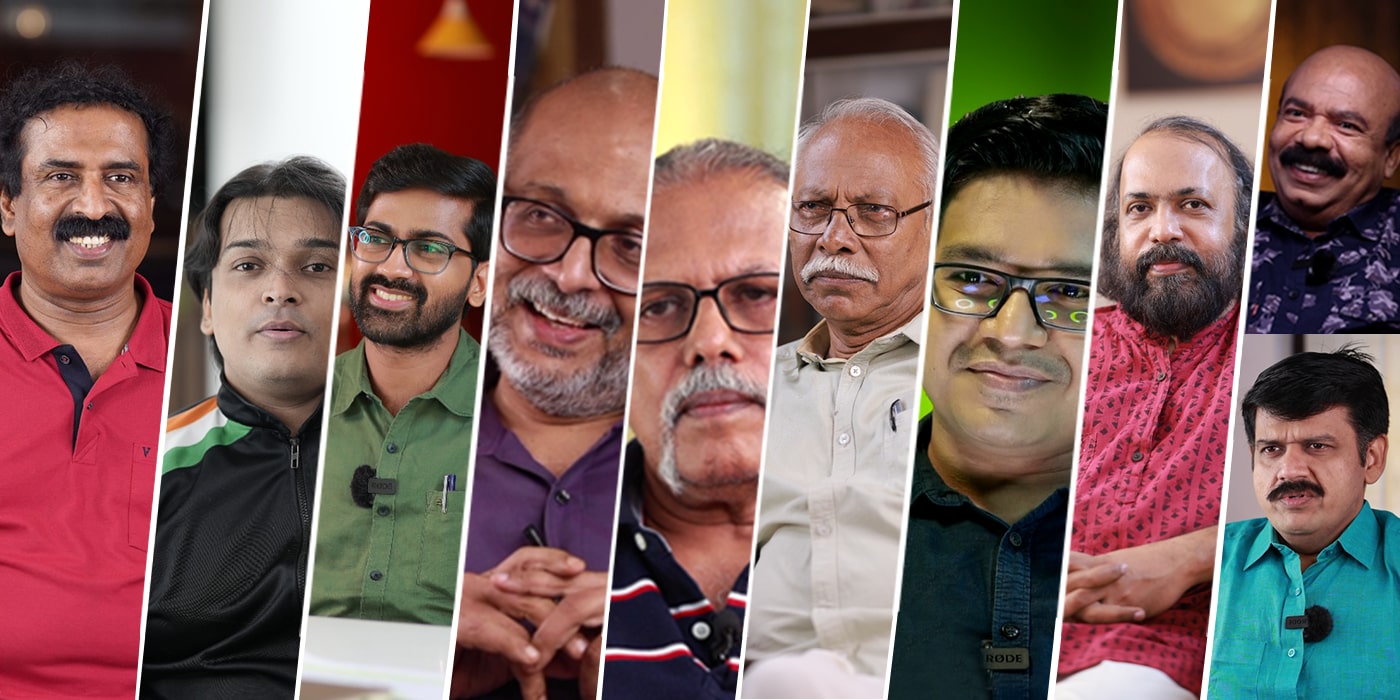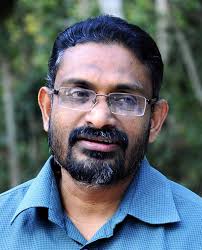

Benny Daniel, popularly known by his pen name Benyamin, is a prominent Malayalam writer from Kerala, born on 18 May 1971. He has authored around thirty books across various genres, including short stories, novels, and memoirs. His most notable work, Goat Days (Aadujeevitham), won prestigious awards such as the Abu Dhabi Sakthi Award, Kerala Sahitya Akademi Award, and the JCB Prize. It was also shortlisted for the Man Asian Literary Prize. Another one of his significant novels, Manthalirile 20 Communist Varshangal, won the Vayalar Award in 2021.
The interview with Benyamin explores his literary journey, highlighting the evolution of his writing from personal introspections to more refined works like Aadujeevitham. He discusses how subconscious creativity shapes his storytelling, the role of universal love in his non-religious spirituality, and critiques Malayali societal attitudes like egotism and environmental neglect. Influenced by authors like Kazantzakis and Krishnamurti, Benyamin emphasizes resilience, inclusivity, and humanistic values in navigating polarized societal trends.
In the second interview, Benyamin talks about how Malayalis form tight communities when they migrate, especially in the first generation, but newer generations become more open to different cultures. He explains that many young Malayalis leave Kerala due to limited job opportunities, lack of freedom, and safety concerns. The younger generation is more confident and adaptable when settling abroad. He also points out that Kerala’s education system and social restrictions contribute to the migration trend, with youth seeking better prospects and personal freedom elsewhere.
Benyamin highlights how BJP's divisive narratives, like "Love Jihad," are fostering mistrust between Christians and Muslims in India. He critiques the historical myths surrounding Kerala's Christian community, such as Saint Thomas's arrival, and emphasizes the need for critical thinking. He discusses how religion often exploits human fears to maintain control and criticizes the commercialization of faith. Benyamin urges individuals to move away from blind religiosity, focus on rationality, and preserve Kerala's interfaith harmony against divisive agendas.
Benyamin discusses the challenges of adapting Aadujeevitham into a film, highlighting the years-long collaboration with director Blessy to ensure authenticity. He praises Blessy's perfectionism, including casting Prithviraj, whose performance is expected to redefine his career. The film, releasing in six languages, explores universal themes like resilience and labor exploitation. Benyamin hopes the team's dedication earns global recognition, showcasing the film's depth and value.
Benyamin reflects on the historical and internal conflicts within Christianity, particularly in Kerala. He highlights the paradox of a faith advocating peace but marked by violent clashes, such as those among different Christian denominations. He finds the fragmentation of even small Christian communities, like those in Kerala, into numerous factions under leaders with differing beliefs and practices, deeply ironic. He explores theological disputes, such as differences over Christ’s nature and church traditions, that led to divisions like the Orthodox, Jacobite, and Syro-Malabar factions. Benyamin also discusses the long-standing feuds over church property and liturgical practices, emphasizing that these conflicts often overshadow the religion's spiritual essence.
In the interview, Benyamin discusses his novel "Aadujeevitham" ("Goat Days"), emphasizing themes of loneliness and resilience beyond the protagonist's story. He highlights the importance of embedding meaningful messages in his work and using literature to address societal issues, as seen in his novel "Sharirashastram" ("Physiology"). Benyamin reflects on his creative process, character development, and the need for writers to push boundaries and tackle social issues. He also shares his political views, aligning with leftist ideologies and critiquing capitalism. He defends Kerala's Communist Party, discusses the state's economic challenges, and predicts the BJP's continued dominance in Indian politics due to strong leadership. Benyamin remains hopeful about India's democratic spirit and appreciates the interview's depth and thought-provoking nature.
In the interview, Benyamin discusses his commitment to leftist ideologies and critiques of capitalism. He emphasizes that human life and discussions are incomplete without politics, aligning himself with communist principles. Benyamin criticizes capitalism for promoting greed and inequality, while defending the ideals of communism despite its practical failures. He highlights the economic challenges in Kerala, advocating for better infrastructure and investment, particularly in the IT sector. Benyamin also predicts the BJP's continued dominance in Indian politics due to strong leadership and a weak opposition. He appreciates the depth of the interview and hopes for more such meaningful discussions in the future.